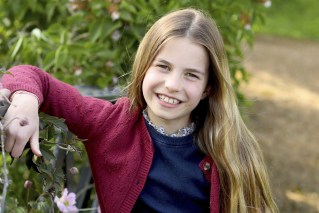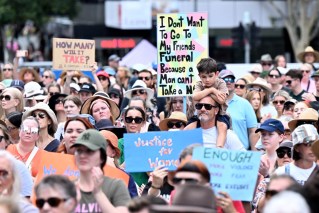Back to the vax: With Covid losing pace, Premier warns flu running rampant
Flu cases in Queensland have shot up almost 1000 per cent since January compared to the same period last year, prompting calls from Premier Annastacia Palaszczuk to get vaccinated.


Premier Annastacia Palaszczuk has urged Queenslanders to get a flu shot. (AAP Image/Darren England)
So far in 2023 more than 6300 influenza cases resulting in eight deaths have been recorded in Queensland compared to just 69 influenza cases and no fatalities reported between January 1 and April 9 last year.
The alarming state-wide increase has led Palaszczuk and Health Minister Yvette D’Ath to urge Queenslanders to get vaccinated before winter sets in.
Queensland’s peak month for flu outbreaks is usually August.
“Because the flu strains change every year, it’s important to get the flu shot every year,” Palaszczuk said.
“Queensland has already seen a steady rise in the flu cases across the state and getting vaccinated now provides the best protection before the likely peak in August.
“Flu affects people of all ages, but it is particularly serious in young babies and children, as well as pregnant women and the elderly – so let’s do everything we can to protect our most vulnerable communities.”
D’Ath said that in addition to getting vaccinated, people could take further protective measures by staying home when sick, frequently washing their hands often and covering any coughs or sneezes with a tissue or elbow.
“They may be very simple acts, but time and time again, they have proven critical in stopping the spread of infectious diseases,” she said.
Chief health officer John Gerrard said everyone aged six months and older should get a flu vaccine this year.
“It is the single most important measure many of us can take to protect ourselves and each other,” he said.
“Young people in particular play an important role in getting vaccinated as they are considered super-spreaders.
Gerrard said those most at risk were young children and people aged 65 years and over, as well as Aboriginal and Torres Strait Islander people, people with certain medical conditions and pregnant women.
Vaccines are available from a range of primary care immunisation providers, with several people able to access free vaccines under the National Immunisation Program.
More information is available here.












